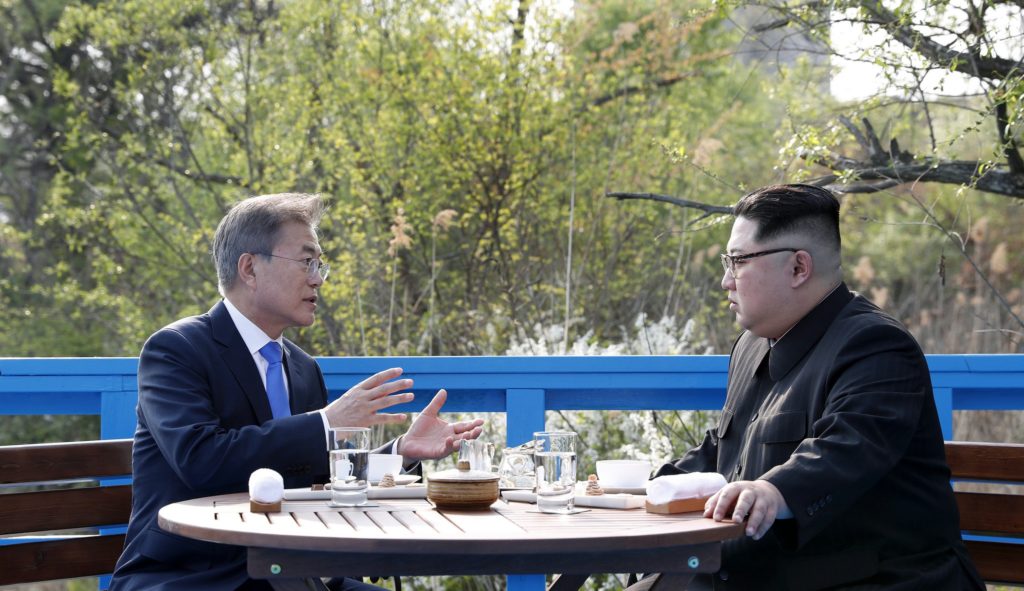The Peninsula
2022 in Review: An End to the Korean War?

This is the sixth piece in a series looking at how the issues identified in KEI’s annual “10 Issues to Watch for on the Korean Peninsula” series and other issues of note developed in 2022. The original “10 Issues” piece can be found here.
The prospect of ending the Korean War is even more dismal now then it was at the start of 2022. When the year began, there were active if desultory discussions about a formal end-of-war-declaration as the administration of President Moon Jae-in doggedly tried to garner support among the various stakeholders involved during its final months in office.
ROK officials announced they had effectively agreed on a draft text of a declaration with their U.S. counterparts. Yet, despite the Biden administration’s oft-stated willingness to talk with North Korea anytime, anywhere and without preconditions and its support for an end of the war declaration as one step or goal in negotiations, it was evident it did not share the Moon administration’s belief that a declaration was the proper way to restart talks. The timing was wrong. Although ROK officials also said China supported a declaration, such support remained general and nebulous. Importantly, North Korean officials, though calling it an admirable idea, demurred, arguing the United States first must end its hostile policy (e.g., sanctions and military exercises); a non-starter in Washington.
At best, the Moon administration’s effort was a last-ditch attempt to break a two-plus year stalemate in inter-Korean and U.S.-North Korean negotiations, based on the hope that Moon’s progressive successor, Lee Jae-myung, would carry the policy forward if elected president. At worst, the effort appeared a desperate and – to its harshest critics – cynical ploy to secure Moon’s legacy whether the declaration achieved anything substantive or not. Either way, the effort was for naught. Lee was narrowly defeated by conservative candidate, Yoon Seok Yul, who openly opposed the end-of-war declaration. Not only would it not spur meaningful talks, Yoon argued, it would call into questions the alliance and U.S. military presence before any real progress had been made toward North Korean denuclearization.
South Korea’s and U.S.-ROK alliance policy has since shifted in emphasis from diplomacy to deterrence. North Korea has undertaken a historically unprecedented missile testing campaign and passed a new nuclear policy law, further codifying its stance as a nuclear weapons state while framing its own defense and nuclear doctrine in increasingly preemptory terms. Seoul has responded in kind. Meanwhile, Russia’s invasion of Ukraine and worsening U.S.-China relations have subsumed militarized Korean division under a broader hardening of geopolitical fault lines.
South Korean supporters of the end-of-war declaration have continued to make the rounds in Washington, often pointing to draft legislation in the House of Representatives that highlights the Korean War armistice agreement neither formally ended the war nor represented a final peaceful settlement and that a permanent state of war does not serve the national interests of the United States or its allies. The legislation supports finding a way to end the state of war formally and finally between North Korea, South Korea, and the United States. Unfortunately, it lacks bipartisan support – among its 45 cosponsors, there is one Republican – and has no chance of passage. Furthermore, even if it did, it’s a non-binding, “sense of” Congress resolution, which merely expresses the opinion of Congress (or the relevant chamber) but has no formal effect on public policy and has no force of law.
In any event, grasping for ways to enhance engagement and lower the temperature on the Korean Peninsula is not only understandable but urgent. There is widespread consensus that deterrence and dissuasion alone are insufficient to achieving denuclearization. Diplomacy, too, is critical. Setting aside the merits or lack thereof of an end-of-war declaration, the effort behind it reflects the need for diplomacy to ultimately chart a path away from a never ending (if technically ceased) war.
Clint Work is a Fellow and Director of Academic Affairs at the Korea Economic Institute of America. The views expressed here are the author’s alone.
Photo from the Republic of Korea’s photostream on flickr Creative Commons.
